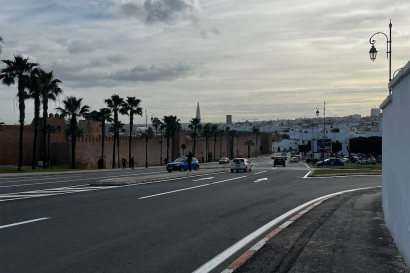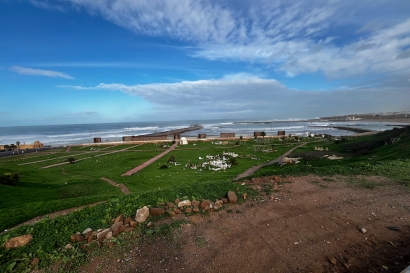This Saturday, I will return to the United States after a month of Spanish-language intensive and immersion in Costa Rican culture. I don’t know yet if I am happy or sad, but I wanted to share four of the amazing things I learned about Costa Rica and Pura Vida while living here.
1. Costa Rica is consistently named one of the happiest countries in the world. Although every Tico has a different reason why, I think it’s because Costa Ricans look at life differently– everything is something to be grateful for. A good day? Pura vida. Finished your homework early? Pura vida. Didn’t forget your raincoat when you left this morning? Pura vida. Instead of reacting to the negatives of day-to-day life– there was homework, it was raining, not all days are good– Ticos look at the world as opportunities to celebrate, to give thanks, and to share their joy with the people around them.
2. Since 1949, Costa Rica hasn’t had a national army. Although this is a result of political changes and decisions, it is also metaphorical for me. Costa Rica abolished its army and hasn’t seen international conflict since. The government took the excess money and used it to improve national education and health systems, demonstrating that the country’s priority is in the people’s wellbeing. Now, Costa Rica attracts thousands of medical tourists who want to receive better and cheaper health care. The hospitals in Costa Rica won’t turn away someone that can’t pay for treatment– seeking health for all people, not just those who can afford to be seen.
3. Costa Rica has pledged to be carbon neutral by 2021! This goal is indicative of Costa Rica’s environmental strengths; it aims to show the world that biodiversity conservation is important and doable. I have never been to a country that has dry forests, cloud forests, rain forests, valleys, and coastal lands all in the same place, and Costa Rica is dedicated to protecting its wildlife. Throughout my trip here, I have seen so many examples of Ticos celebrating the immense biodiversity that they live in– from jaguar refugees and national parks to local farmers markets and organic foods, Ticos are proud of their natural landscape. It’s a way of thinking we can all benefit from.
4. The coffee!!!!!! The high elevation near the volcanoes is perfect for growing coffee (and strawberries). Cafe Britt, the coffee I bought to take home to the United States, is considered one of the best companies in the country. After taking the tour, I agreed. Coffee pickers are paid by the basket, and each basket is upwards of twenty five pounds. The elevation, tropical climate, and careful workmanship of coffee makers makes this coffee naturally sweet, strong, and just what I need to start the morning. I definitely am not going back to life without that.
The next time I write, I will be settling back in to life in the United States. Thanks for sharing this incredible month with me. Pura vida!
Dorothy




Dorothy Moore
I'm Dorothy Moore, a recently-declared Geography and Education Studies major at Macalester College. I am originally from Oak Park, a suburb of Chicago, so I am most comfortable in cities with public transportation, bike routes, and corner coffee shops. My favorite words are wanderlust (love of travel) and fervent (having great intensity of spirit) and I try to live with them as guiding principles. I love to read and write, and I am always looking for a new story to tell. I don't know where I'm headed, but for now, I'm happy just exploring.






